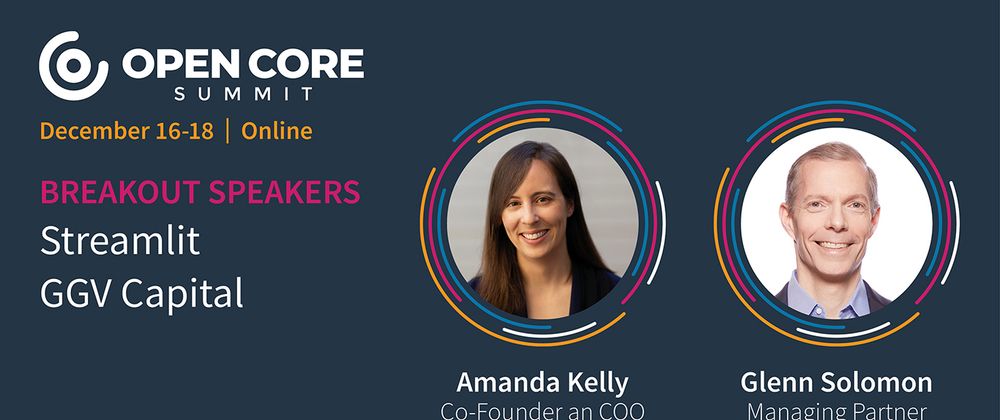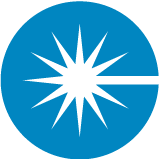Amanda Kelly is a co-founder and COO of Streamlit, the fastest and easiest app framework for data science and machine learning. Prior to Streamlit, Amanda led product and operations for several stealthy Google and Google X projects and served as Director of Field Operations for Zoox. Amanda has an MBA from Stanford GSB and holds several AV-related patents.
Relevant Links
LinkedIn - Twitter
Glenn Solomon is a Managing Partner at GGV Capital with a focus on the Enterprise Tech sector. He invests in startups from seed to growth stages and across key areas, including Open Source, cloud, infrastructure and cyber security. His portfolio includes Coder, HashiCorp, Kong, NS1, Streamlit, Tray.io, Zebrium and more. In the last decade, he has helped nine companies complete IPOs, including Slack, Square and Zendesk. Glenn is the host of Founder Real Talk, a podcast where founders and startup executives discuss the challenges they face and how they've grown from tough experiences. He is also a contributor to Forbes.com where he writes about the trends and companies driving the next $1 trillion enterprise market.
Relevant Links
LinkedIn - Twitter
First-hand look at how the founding team came together, their decision to develop an open source project and a company based on open source
Glenn introduces himself, GGV Capital, Amanda Kelly, and Streamlit - 0:00
How did the idea of Streamlit come about? How did each of the founders come to Streamlit, and I know you were a bit of a holdout, so what got you over the hump? - 1:25
Was there an early app that you saw one of the founders had built, or someone in the community built, that you were excited by? (Amanda highlights first user app as StitchFix as one of the turning points) - 4:26
Going back to the decision to make this open source, was this obvious to you from day one, did you deliberate, what were the pros and cons? Once you made the decision, what were the next things that happened? - 5:05
Has that decision then cascaded to make it easier to hire people? What downstream impacts has that had on your team and how you’ve thought about building out team and culture at the company? - 7:38
You referenced that things really exploded when you launched. It’s clear there was a lot of excitement in the data science when you guys came public. I’m curious if that momentum/reaction was a surprise to you or what you expected? What did you do right to get that initial big bang? What are lessons learned that you could share with other founders who are going open source? (See: Streamlit’s initial blog post) - 8:59
In my observation, you’ve been really productive from a product standpoint. You’ve launched custom components (enabling third parties to write components that will work within Streamlit) and sharing (enabling the broad sharing of Streamlit analytics to the community). To what do you attribute this productivity that you’ve established product-wise internally? And it feels like you’ve done work with an ecosystem. How do you work the ecosystem part of your business into the model? - 13:10
Going into community, I think you do an incredible job of thinking strategically about your community, how to track it, how to engage it, how to measure success about growing it. Share how you think about those things, what you’ve learned from this process, and what you think are key drivers of your success. - 18:10
Let’s talk about your team. You seem to be mostly engineers and product folks. How are you getting the best people? Do you have some secrets you can share? How much of being open source is a help, and how do you lean on being open source when you’re in a recruiting fight? - 22:10
It’s cool that you’ve been able to recruit out of your community. That ends up leading you to a very distributed team. How do you think, if we roll the clock forward past COVID, do you expect to stay pretty distributed? Is that a benefit in terms of recruiting? What are the pros and cons? - 24:22
I also want to ask you about your commercial plans. Any thoughts on timeline, when folks should expect to hear more from you on the commercial side? And the bridging of the gap between open source and commercial viability is not easy. Just curious how you’re thinking about that and why you think you’ll be successful bridging that gap. - 27:28
Last question is about fundraising. You raised some seed money, and you were intentional about who you raised from, because you wanted those people to help you with the launch. We’re extremely excited to have co-led your Series A. What have you learned through your fundraising processes, and how will that impact how you think about them going forward? - 29:33
Concluding remarks - 32:02
Share your questions and comments below!



Top comments (0)